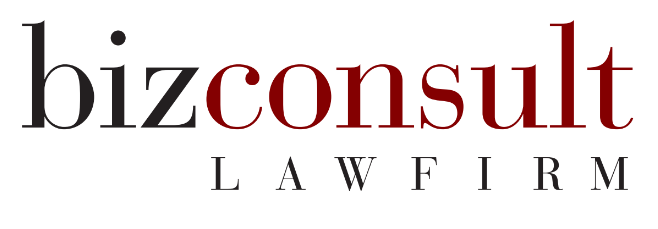Vietnam, once something of a laggard compared with many of its regional peers in the protection of intellectual property, has taken significant strides in recent years to close the gaps in the legal framework. That’s especially so in intellectual property rights (IPR), which include inventions, industrial designs, layout designs of integrated circuits, trade secrets, marks, trade names and geographical indications.

Managing Partner
Bizconsult Law Firm
Hanoi
Email: tuanna@bizconsult.vn
The Intellectual Property Law was first enacted in 2005, with updates between 2009 and 2019 bringing the legislation more into line with international and regional agreements. Most recently, 2022’s revision represents a pivotal moment in Vietnam’s commitment to safeguarding IPR and covers a wide range of IP objects such as patents, utility solutions, industrial designs, trademarks, appellations of origin, geographical indications, business secrets, copyrights and related rights.
As of 2022, Vietnam was a signatory to the following multinational and bilateral agreements covering the registration and protection of IPR:
- 2020: Regional Comprehensive Economic Partnership Agreement
- 2019: The Hague Agreement Concerning the International Registration of Industrial Designs
- 2019: Free Trade Agreement between Vietnam and the EU
- 2018: Comprehensive and Progressive Agreement for Trans-Pacific Partnership
- 2008: Vietnam-Japan Economic Partnership Agreement (IP chapter)
- 2007: World Trade Organisation Agreement on Trade Related Aspects of IPR
- 2006: Act of the International Convention for the Protection of New Varieties of Plants
- 2005: Paris Convention for the Protection of Industrial Property Brussels Convention Relating to the Distribution of Programme-Carrying Signals Transmitted by Satellite; Protocol Relating to the Madrid Agreement Concerning the International Registration of Marks
- 2004: Berne Convention for the Protection of Literary and Artistic Works
- 2003: Agreement between Japan and Vietnam for the Liberalisation, Promotion and Protection of Investment
- 2000: Agreement between the US and Vietnam on trade relations
- 1993: Patent Co-operation Treaty
- 1949: Madrid Agreement on International Registration of Marks
Protection of IPR

Senior Associate
Bizconsult Law Firm
Hanoi
Email: lynn@bizconsult.vn
Under the IP Law, IPR to inventions, industrial designs, layout designs, marks and geographical indications shall be granted according to the guidelines issued by the Intellectual Property Office of Vietnam. IPR to well-known trademarks shall be granted based on their use, rather than registration.
The IP law and its implementing regulations set out clear and detailed conditions and procedures for examination and registration of IPR in the country. Due to limitations of space, this article only gives a summary of who is entitled to register the inventions, industrial designs, layout designs, geographical indications and trademarks.
Inventions, industrial & layout designs
- Authors who have created inventions, industrial designs or layout designs by their own labour and at their own expense.
- Organisations or individuals that funded or gave material assistance to authors (through assignments or by employment), or those assigned to manage genetic resources or traditional knowledge about genetic resources under contracts for access to genetic resources and benefit-sharing, unless otherwise agreed by the parties involved, or in the cases specified in the IP Law.
- Where multiple parties have jointly created or invested in the creation of an invention, industrial design or layout design, all of them have the registration right, which can only be exercised with the consensus of all.
- An organisation or individual with the right to registration may assign that right to other organisations or individuals through a written contract, bequest or inheritance in accordance with the law, even where a registration application has already been filed.
- Geographical indications. Foreign organisations and individuals holding rights to geographical indications under the law of the countries of origin have the right to register them in Vietnam.
Marks
- Organisations and individuals may register marks to be used for goods they produce or services they provide.
- Organisations and individuals that conduct lawful commercial activities may register marks for products they are marketing, but which are produced by others, provided that the producers neither use such marks for their own products nor object to such registration.
There are other cases related to marks, as well as to other IPR, including those to plant varieties, appellations of origin, copyright and related rights, that are detailed in the IP Law. For detailed information on these, contact an IP attorney.
IPR enforcement system, from the central government to provincial agencies. Depending on the type, content and degree of infringement, IPR holders can apply administrative, civil or criminal procedures to protect and enforce their rights.
Vietnam has established a cross-border enforcement system under the customs offices and market management agencies of different levels of the government in each of the 63 provinces.
Administrative procedures. A first recourse and quickest way for IPR holders to settle infringements. IPR holders file a request to the competent inspection agencies to issue a decision on administrative punitive sanctions against infringers and an order to cease infringement actions. Vietnam’s inspection agencies are drawn from different levels from the provincial governments.
Each central ministry also has its own inspection system at different levels, from the central ministry to provincial departments.
Administrative punitive sanctions include such things as fines, confiscation of IPR infringing products, and temporary suspension of business activity. Under this procedure, IPR holders cannot demand compensation for damages from infringers.
Civil procedures. Rights holders may consider this route if they seek compensation for damages from IPR infringers. Rights holders can file a petition to the courts to apply any or all of the following legal remedies: injunctive relief; order to stop infringement action; compulsory public apology and rectification; compensation for damages; order to remove infringing elements from products (or their destruction in case they cannot be removed); confiscation of infringing products for public purposes; and others as permitted by the law.
Criminal procedures. This recourse may be considered for serious cases of IPR infringement, which cause or are likely to cause serious damage to people’s health, adverse effects on society, or which are on a large scale. Criminal prosecution will typically begin with a denunciation to the police, market management agency or other competent authority. These will require evidence of the IPR infringement.
These agencies will carry out an investigation, gathering further proof of infringement and, if the evidence is sufficient, prosecute the infringement action and offenders under the criminal procedure. Criminal remedies include those for civil procedures, but can also result in imprisonment for offenders.
The cross-border enforcement system also includes the Anti-Smuggling Investigation Bureau under the General Department of Customs, the Border-Line Guards and Coastal Guards under the Ministry of National Defence, which are responsible for preventing infringing products from entering or exiting Vietnam, either through regular trade channels or through smuggling.
Due to the complexity of these procedures, both foreign and domestic IPR holders should contact a local qualified IP law firm to protect their rights in Vietnam.
IP representative services
Under article 154 of the IP Law, only a qualified IP law firm can provide IPR representation services in Vietnam. To qualify, a law firm must have at least one attorney who holds an IP practice licence and have been granted an Organisational IP Representative Practice Licence by a competent state authority of Vietnam. Foreign law firms and foreign consulting companies established and operating in Vietnam are not permitted to provide such services to foreign or domestic entities or individuals.

BIZCONSULT LAW FIRM
No. 20 Tran Hung Dao Street
Phan Chu Trinh Ward
Hoan Kiem District, Hanoi, Vietnam
Tel: +84 24 3933 2129
Email: info-hn@bizconsult.vn
www.bizconsult.vn






























